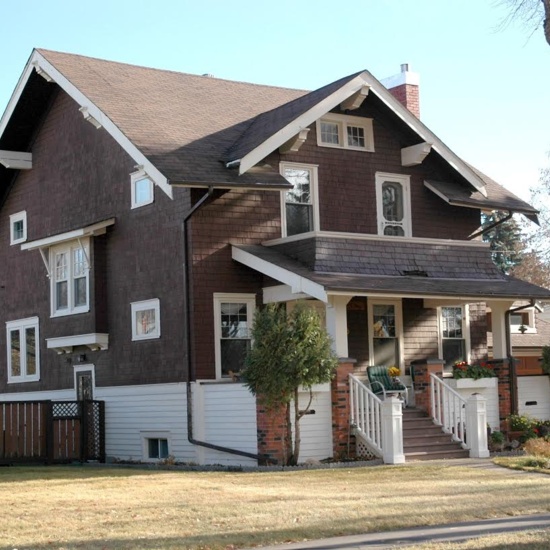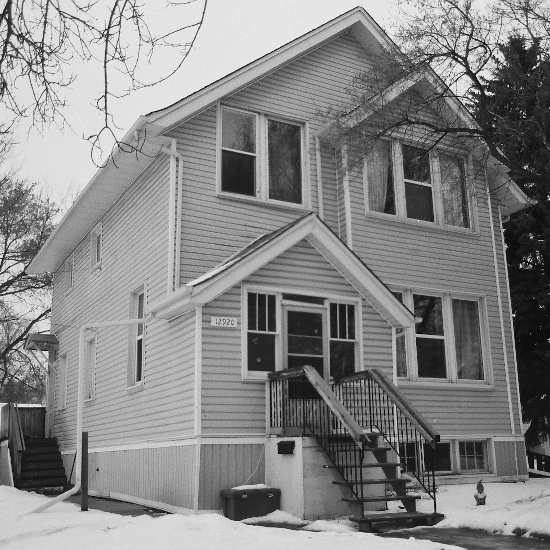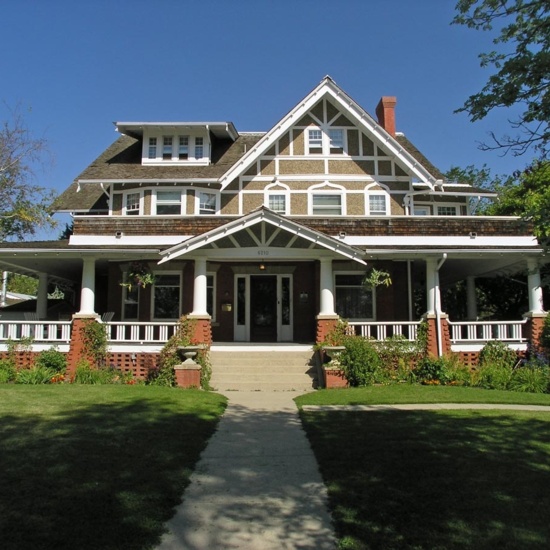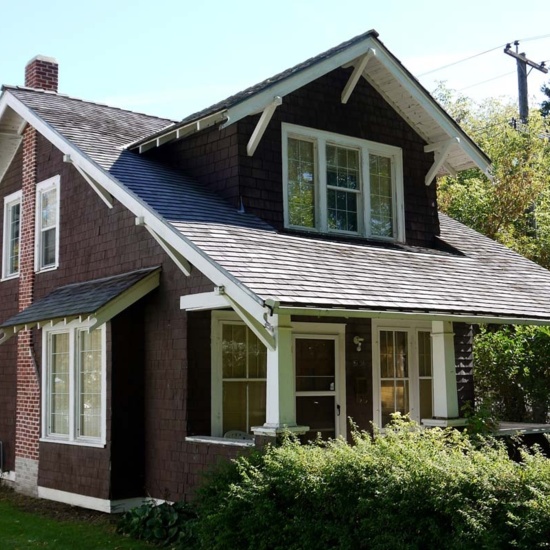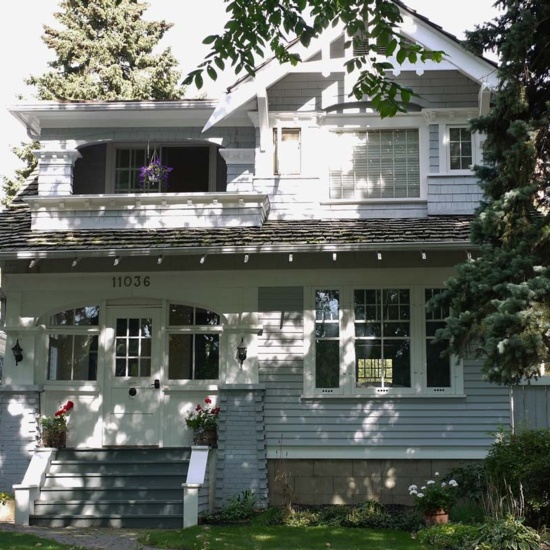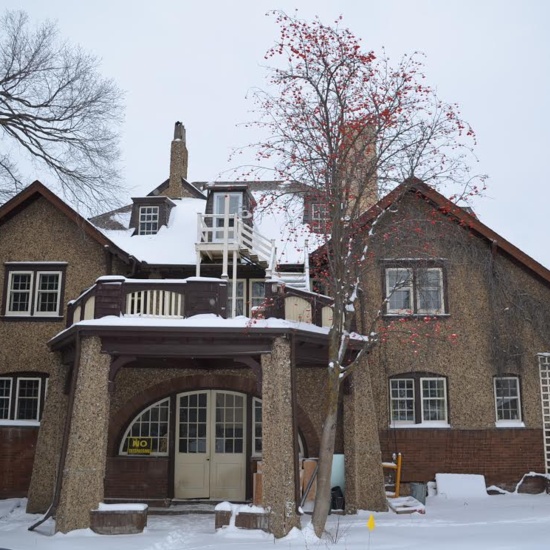Arts and Crafts
The Arts and Crafts style valued natural materials and truth in form. It was typically very ornate and employed a lot of details.
The Arts and Crafts style valued natural materials and truth in form. It was typically very ornate and employed a lot of details.
The Arts and Crafts style was a reaction against the excessive ornamentation of the Victorian era. Instead, the Arts and Crafts style encouraged originality, simplicity of form and the use of local, natural materials such as stone or wood. The labour intensive and custom details common in these homes resulted in a higher construction cost, putting this style beyond the reach of many Edmontonians.
Characteristics
- Asymmetrical facades
- Sloping, gabled roof (or sometimes hipped) with wide, unenclosed eave overhangs
- Mixed materials throughout structure (shingles, wood siding, and stucco finishes were common)
- Staining was often preferred over painted finishes
- Extensions or cantilevered second floors
- Porches with roofs supported by square columns which frequently extended to ground
- Exposed roof rafters
- Hipped or gabled dormers
- Decorative beams or braces under gables
- Large chimneys with multiple flues
- Handcrafted, built-in cabinetry and custom features such as window seats
Details
Structures
Buttercup Farmhouse
Elm Park School
Holgate Residence
Margaret Marshall Residence
R. W. McKinnell Residence
Sylvancroft
Architects
Roland Lines
Ernest William Morehouse
Herbert Story
Unknown
Hand & Blackstead
Magrath-Holgate Company
Time Periods
Character Defining Elements
Balcony, Bay window, Beams and braces, Bell-cast shingle eaves, Brackets, Brick cladding, Cedar shingle, Chimney, Clapboard siding, Columns, Eaves, Exposed rafters, Gable dormer, Gable roof, Gabled parapet, Half storey, Half-timbering, Hipped dormers, Hipped roof, Intersecting gable roof, Irregular footprint, Nailed frame structure, Pebble dash stucco cladding, Pier or Pillar, Pillars, Porch, Porte cochere, Rectangular footprint, Shed roof, Shed roof dormer, Solarium, Square footprint, Stucco cladding, Three storeys or more, Two & a half storeys, Two storeys, Two-storey bays, Veranda, Wooden shingles
